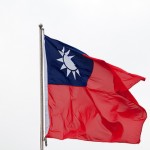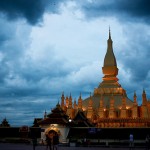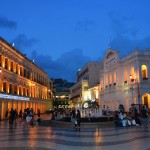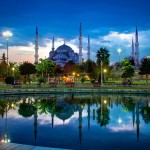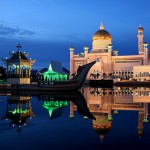Taiwan may be geographically separated from mainland China, but it still clings on to the traditions of the ancient Chinese, while commemorating events and personalities that shaped Taiwan and led the country to its founding in 1912.
Taiwan classifies its public holidays as commemorative (using the Gregorian calendar) and traditional (using the lunar calendar) – accurate representations of Taiwan’s effort to respect their roots while keeping guard of their hard-won freedom.
Below is the Taiwan public holiday schedule 2014.
Founding Day – Wednesday, 1 January 2014
On this day in 1912, the first democratic republic in Asia was born. Taiwan or the Republic of China (not the People’s Republic of China) was born out of the struggles of Sun Yat-sen who was discontented with how the Qing Dynasty ran the government, oppressed the people, and spent the coffers without restraint. Fueled by his earlier victories, the revolutionary movement gained ground and won independence from the Qing government after only six months. On January 1 of the next year, Sun Yat-sen was elected the president of the republic. To commemorate his struggles and eventual victory and the creation of Taiwan, the people display the national flag on this day. The streets are brightly lit with lanterns and lights and filled up with banners that remind the people of the heroic deeds of their pioneers.
Chinese New Year – Thursday to Monday, 30 January to 3 February 2014
The Taiwanese originated from the mainland China, and despite their zealous pursuit for independence from any political interference from the mainland, they brought with them ancient traditions of the land of their ancestors. The Chinese New Year in Taiwan is as grand as they are back in the People’s Republic, with giant 40-tonne glowing dragon effigy drawing revelers from all over the country and all corners of the globe. Though Taiwan’s Chinese New Year is a visual delight, it is, more important to the locals, a deeply spiritual occasion to fill the temples and burn incense in gratitude of good fortune and in fervent prayer for more blessings. Fire crackers and dragon dances are highlights of the festivities, while indoors, families feast on rice cake (so luck and prosperity stick with them all year round), fish, poultry, noodles and sweet delicacies – all thought to bring harmony in relations, longevity and a prosperous life.
Lantern Festival – Friday, 14 February 2014
The Lantern Festival is held on the 15th day of the Chinese New Year to officially conclude the festivities. Thousands of sky lanterns made of bamboo and rice paper buttercup balloons are illuminated on this day and strung together to fill the night skies.
Peace Memorial Day – Friday, 28 February 2014
The anti-government protest that took place on this day in 1947 led to a bloody event. The 228 Incident, as it became known, was a taboo subject for many years until President Lee Teng-hui (one of the leaders of Kuomintang who was responsible for the 228 Incident) sought public apology in 1995. To remember the victims of the incident, the president of Taiwan rings a commemorative bell on this day. Apart from memorial services, concerts, art exhibits and fun runs are also held on this day.
Women’s and Children’s Day – Friday, 4 April 2014
This combined holiday came out of the prevalent practice of mothers accompanying their children to school to celebrate Children’s Day. To acknowledge the importance of the role of mothers in raising the young, this day was made a public holiday in 2007.
Tomb Sweeping Day – Saturday, 5 April 2014
Tomb Sweeping Day is an ancient ritual in mainland China, a festival known as Ching Ming. Before every major holidays, families clean the graveyards of their departed, honor their ancestors and offer them food (‘grave cakes’ are especially made for this day), a practice that has persisted to this day despite Taiwan’s open embrace of modernization. Since most of the country’s graveyards are in rural areas, families also take this opportunity and the nice change in weather (this day marks the arrival of spring) to enjoy the outdoors after they have performed the rites.
Labor Day – Thursday, 1 May 2014
As a heavily industrialized country, Taiwan honors the social and economic contributions of its workers to the economy.
Dragon Boat Festival – Monday, 2 June 2014
The legend of ancient China’s preeminent poet Chu Yuan is as widely observed here as it is in the mainland. The Dragon Boat Festival came about in an attempt to rescue Chu Yuan from drowning. Dragon boat races are the highlights of the event.
Mid-Autumn Festival – Monday, 8 September 2014
The Mid-Autumn Festival is celebrated in Taiwan with the preparation and consumption of moon cakes. But lately, outdoor barbecues have become an equally popular way to reunite with families and friends. In Taipei, riverside parks fill up with families and their outdoor contraptions to celebrate this day.
National Day/Double Tenth Day – Friday, 10 October 2014
On this day in 1911, the Wuch’ang Uprising took place which eventually led to a revolution that created the Republic of China. In the morning, a celebration ceremony takes place in the Presidential Office Building grounds and attended by dignitaries and key government officials reviewing the military. The occasion concludes with an address from the president.
Explore the rest of the world
More from my site
Article by Chris
Chris had a passion to contribute to society especially to fellow travelers like himself. He also had a passion for Southeast Asia and frequently visited. While brainstorming ideas, he decided that a travel blog dedicated to his favorite countries, Thailand and Singapore, could be more beneficial than any guidebook. Only one year later did the blog’s success bring in more writers, more countries, and more readers.
- Google+ |
- More Posts (327)
Help others get the information they need by liking or sharing our page!
Follow @followloveblab
 The Oriental Allure: Captivating and Mysterious
The Oriental Allure: Captivating and Mysterious